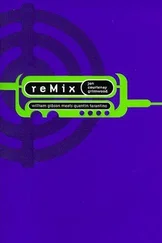“I had a look at the crime-scene report,” she added into his silence.
“How did . . . ?” Of course, her father, sat at his front desk, proud of how well his only daughter was doing. “What did it tell you?”
Kamila hesitated, replying with a question of her own. “Wouldn’t you expect increased disorganization?”
“Expect what?”
Kamila shrugged. “This is the third death. Personally, at this point, I’d be looking for proof of greater risks run, not enough time allowed, less safe crime scenes, fewer escape routes . . .” She ticked the points off in her head. “Yet, if anything, this killing is more meticulous than the last, which had inherent differences in MO to the one before.”
“You’re absolutely certain?”
“Sure.” Kamila nodded. “I pulled out all the files,” she said, pointing to a distant wall screen. “Examined the earlier crime shots. Identical wounds, different MOs. The discrepancy just didn’t get logged.”
“Why not?”
Her shrug was expressive. In it was everything Kamila felt about her opposite number at the polizia touristica . But what she said was, “Maybe he’s overworked . . .”
On average 1 percent of a city dies each year. Iskandryia had 4 million people. Which meant forty thousand deaths, a quarter of which might merit investigation. Setting aside the poor and the unimportant reduced that figure to three thousand, the vast majority of whom had to be buried by noon (if they died in the previous twenty-four hours), or by the following noon (if they died at noon or after).
So far this year polizia touristica had dealt with seven bodies. Four drownings and the three butchered tourists, on the last of which she was doing the work for them.
“My unofficial opinion,” Kamila said hesitantly, “based on observation and on having sight of the autopsy reports of the earlier killings . . .” She was picking her words with care. “Despite obvious similarities, my unofficial belief is that victim three was not killed by the same person as victim two, because, in the case I’ve examined, the positioning of each cut is more, not less, precise.”
Kamila nodded to the dead girl’s opened throat, then indicated the matching cross wound at the other end of the upright. “Exact,” she said, reaching for her ruler. “Exactly halfway between chin and breast bone, exactly halfway down the length of the genitals. And again, the ribs . . . Identical length of cut, identical positioning. Of course,” she said, “I’m not in a position to refute that murders one and two were committed by the same killer.”
“What are you trying to tell me?” Raf asked; it seemed a fair enough question.
“On the record,” said Kamila, “I’m highlighting disquieting aspects of a crime. More than that it’s impossible to say without further work.” Her smile was bleak. “Off the record, I reckon Dawn Hauger was bled to death, then mutilated by someone who lacked the nerve required to butcher her while alive . . .”
“You’re saying,” said Raf, “that we’ve got a series of copycat killings . . .”
Kamila looked at him. “You disagree?”
“Yes,” said Raf, nodding. “I think what we’ve got is atrocity by numbers.”
What was it with the missing mirrors? The last time the Senator had been invited to meet Iskandryia’s governor, half a dozen ornate Murano looking glasses had covered the walls, making a large room look even larger. Now the old man and his mirrors were gone, their memory etched in lighter patches on age-darkened silk. So what was that about, and was it safe to ask?
Was it even safe to be alone with this man?
In front of her sat a killer. Senator Liz couldn’t get that fact out of her head. Not a killer like the General, when war or political expediency dictated, but the real thing. Ashraf Bey had put a revolver to the head of the previous Chief of Detectives and pulled the trigger, claiming humanitarian reasons. And the really weird bit was, no one in the city seemed to find that remotely odd.
But then that was Iskandryia for you.
It seemed the bey might also be behind the assassination in Kabul of Sheik el-Halana, the man who authorized the bombing of the Ottoman Consulate in Seattle. Then there was the death of a Thiergarten agent. And the bey’s rumoured links with the Sultan himself.
As far as Senator Liz was concerned, the sooner a deal was done and she was out of his company the better. Her only problem, and it was a big one, was that the ostensibly polite young man sitting opposite was obviously not listening to a word she said. And she really did need him to get behind the plan.
“Your Excellency . . .”
Twin ovals of dark glass. Somewhere behind those lenses was the man himself, whoever he was. And White House opinion was divided on that.
“Tell me,” said the man. “Do you like our wallpaper?”
“Do I . . .” Senator Liz looked as put out as she felt.
“It’s Turkish,” he said. “I was thinking of having it painted. Only that’s going to take gallons of emulsion and I can’t decide on a colour.” He lapsed back into silence, leaving Senator Liz to look around while she decided what, if anything, his comment actually meant.
Added to the main building in 1803, the chamber they used was too large for a withdrawing room, too small to qualify as a proper ballroom. And at exactly one and a half times the height of every other room on the ground floor, it guaranteed that the roof space above was so cramped as to be useless for anything but storage, but Raf still liked it more than any other room in the mansion.
Somewhere, hidden beneath its floor covering, were marble tiles, hacked from a quarry by slaves. But none of the tiles could actually be seen because most of the space was taken by two vast Chinese silk carpets, with Bokhara runners and Isphahan rugs filling in the gaps.
“It’s very nice wallpaper,” Senator Liz said carefully.
“You’re right.” The man sitting opposite her nodded. “The question is, would it look better painted? And if so, should that paint be white?”
Senator Liz swallowed a sigh. Pashazade Ashraf al-Mansur looked frighteningly like his father, the Emir of Tunis, and it appeared the similarity might go more than skin deep. The last time the Senator had been allowed into the Emir’s presence, the man had been camped deep on Jubal Dahar, guarded by dark-eyed girls carrying snubPups. His Highness had taken all of thirty seconds out of that evening’s routine to tell Senator Liz that the answer was no, whatever her query was, except for those bits to which his answer was yes . . .
Behind the Senator stood an interpreter, redundant from the moment she’d discovered that Ashraf Bey spoke English. Since the interpreter’s day job was actually second intelligence attaché at the US Embassy in El Qahirah, Senator Liz had intended to get on-the-hoof briefings as her meeting with the bey progressed. Now, of course, that was impossible.
The Senator would have felt much happier if the impressively bulky file in front of her had contained even one sheet of usable information on the man sitting opposite. But he had no vices, apparently. Having saved the life of the Quitrimala girl, he took no reward, though the sum offered had been vast, astronomical . . . He’d turned down a marriage worth billions, apparently because he wasn’t in love with the girl. He belonged to no clique, no cabal.
And he had to be insane.
Three days he’d kept the world waiting. The President in Washington, the Kaiser . . . Hell, even his own Sultan in Stambul.
“Your Excellency . . .” The entreaty stuck in Senator Liz’s throat. But she had a job to do, even if that job wasn’t easy. “Iskandryia . . .”
Читать дальше












